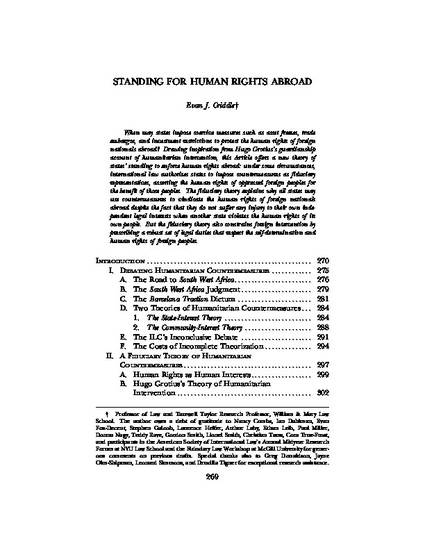
When may states impose coercive measures such as asset freezes, trade embargos, and investment restrictions to protect the human rights of foreign nationals abroad? Drawing inspiration from Hugo Grotius’s guardianship account of humanitarian intervention, this Article offers a new theory of states’ standing to enforce human rights abroad: under some circumstances, international law authorizes states to impose countermeasures as fiduciary representatives, asserting the human rights of oppressed foreign peoples for the benefit of those peoples. The fiduciary theory explains why all states may use countermeasures to vindicate the human rights of foreign nationals abroad despite the fact that they do not suffer any injury to their own independent legal interests when another state violates the human rights of its own people. But the fiduciary theory also constrains foreign intervention by prescribing a robust set of legal duties that respect the self-determination and human rights of foreign peoples.
Available at: http://works.bepress.com/evan-criddle/19/
